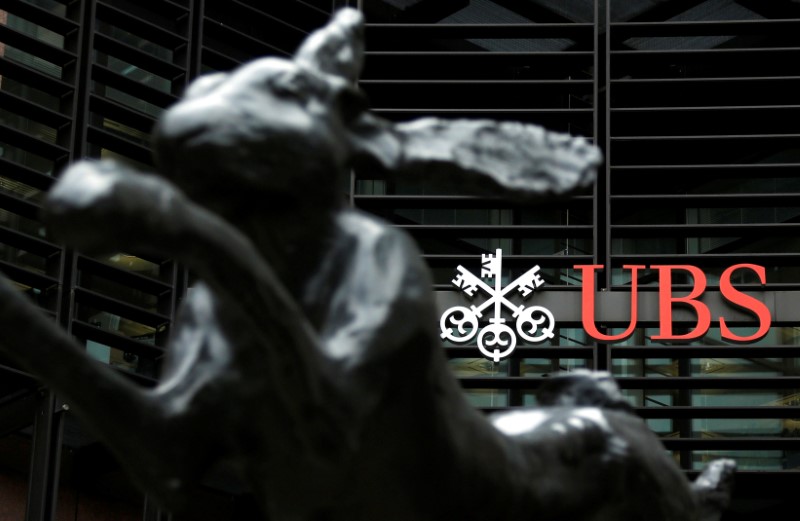By Geoffrey Smith
Investing.com -- For most of the last few years, UBS Group (SIX:UBSG) has been one of the few European banks that could be relied upon to pay its way in a world of cripplingly low interest rates. But even that seems less certain after the Swiss giant’s latest quarterly update.
The investment case for UBS has long been that its reliance on managing the wealth of the world’s ultra-rich makes it immune to cycles in parts of the banking industry reserved for mere mortals such as lending, investment funds and even (gasp) investment banking. But with performance at the investment bank and the core lending business faltering, that's becoming a tougher ask - as the bank acknowledged on Tuesday with a new, lower set of medium-term targets.
UBS stock fell 5.1%, the most of any bank in Europe on Tuesday, to their lowest in over a month. The benchmark Stoxx 600 lost 0.7% to 421.02, while the Swiss SMI index was actually the best performing across the continent with a loss of only 0.3%. That often happens on down days in Europe, given the heavy weighting of defensive stalwarts such as Nestle, Roche and Novartis. Elsewhere, the German DAX fell 0.5% and the FTSE 100 fell 1.2%, as sterling rebounded on stronger-than-expected labor market data.
UBS's profit before tax fell 7% in 2019, and the bank missed most of its targets from operating costs to profitability. Return on core equity fell to 12.4%, missing its target of 15% by a wide margin. The bank announced a new target range of 12%-15%. Conspicuously, it made no mention of any further share buybacks once its current program is completed.
Of course, even a 12% return on equity is something that the likes of Germany’s big banks can only dream of. And the crucial wealth management division did manage to eke out a further 4% gain in pretax profit for the year overall, while the more mundane asset management business posted an even stronger 17% increase.
However, the group’s investment bank saw profit fall 37%, not least due to another $110 million charge in the fourth quarter against goodwill that reflects the fading power of the brand in investment banking.
UBS tried to put a brave face on the coming year, saying that “clients are more active, which should lead to an improvement in transaction-related revenues,” and adding that higher asset prices should boost the commissions it gets on managing all those multi-billion-dollar fortunes.
But it still struck a note of foreboding with regard to the year ahead, specifically noting that “low and persistently negative interest rates and expectations of continuing easy monetary policy will continue to provide some headwinds to net interest income.” That update comes against a background of increased speculation that the Swiss National Bank will take fresh action to stop the franc rising any further against the euro and dollar. The SNB already runs the world’s most savage negative interest rate regime, with a key rate at 0.75%.
